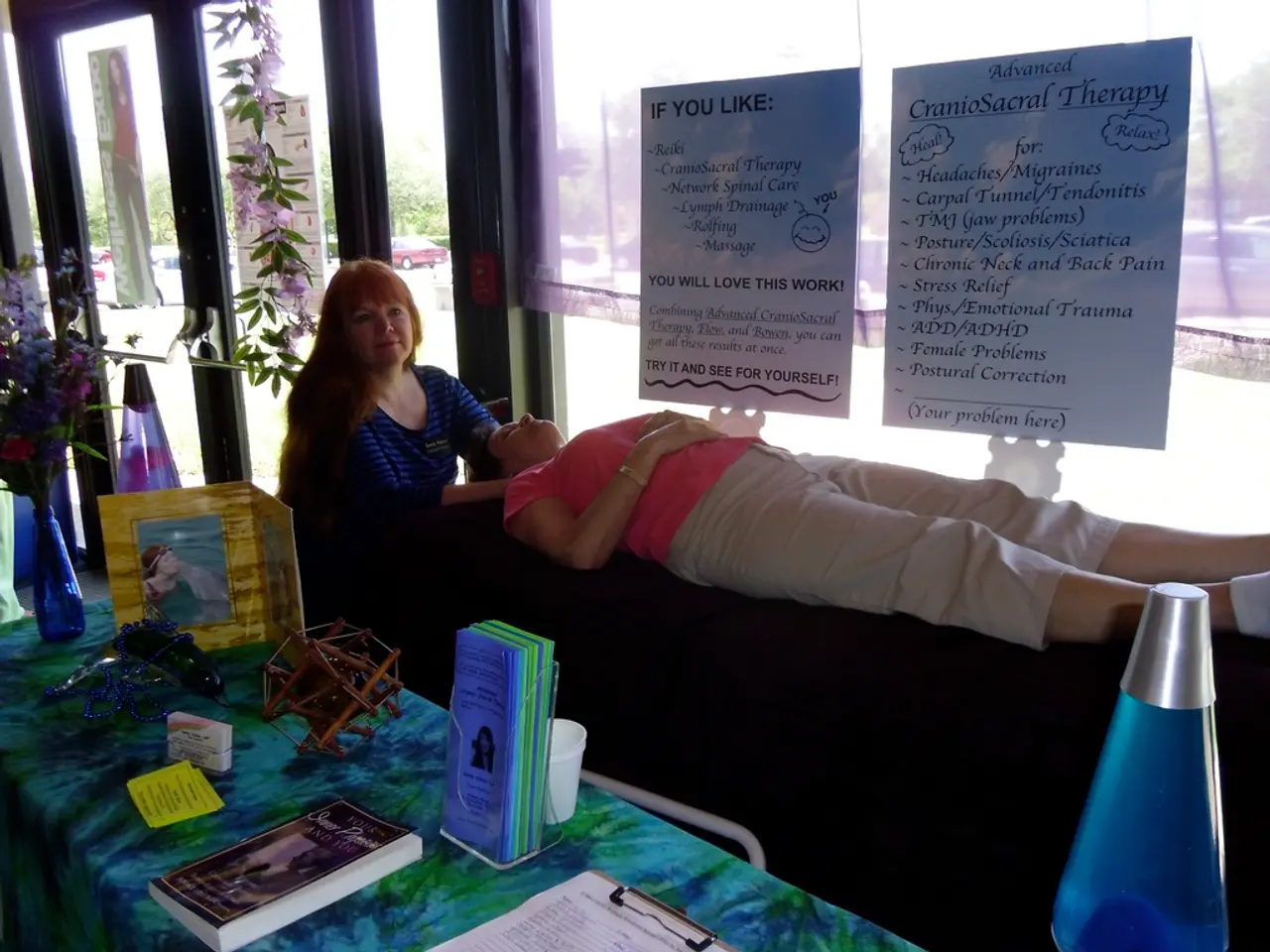Strategies for Alleviating Social Anxiety Independently
Social anxiety, a condition that affects approximately 12.1% of people in the United States, can present itself through symptoms such as sweaty palms, twisted stomachs, and nights spent replaying conversations. Fortunately, there are effective strategies to help manage this condition.
Cognitive-behavioral techniques, particularly Cognitive Behavioral Therapy (CBT), are widely recognised as effective treatments for social anxiety. CBT helps individuals identify and challenge negative thought patterns, replacing them with more realistic and balanced thinking. Key components include cognitive restructuring, exposure therapy, and social skills development.
Cognitive restructuring involves recognising and challenging irrational beliefs that contribute to anxiety. For instance, if someone believes that others will judge them harshly in social situations, a therapist helps them reframe these thoughts to be more positive and realistic. Exposure therapy, a crucial part of CBT, involves gradual exposure to feared social situations. This helps individuals confront their fears in a controlled environment, reducing avoidance behaviors over time. Social skills development can help individuals develop social skills through role-playing and group therapy, providing a supportive environment for practicing social interactions.
Mindfulness and relaxation techniques are beneficial for managing social anxiety by enhancing emotional regulation and reducing physical symptoms of anxiety. Mindfulness and meditation help individuals stay present and focused, reducing the impact of negative thoughts and enhancing emotional regulation. Progressive Muscle Relaxation (PMR) involves tensing and then relaxing different muscle groups, which helps reduce physical tension and anxiety.
Self-care strategies play a vital role in managing social anxiety by providing overall well-being and support. Engaging in pleasurable activities can help distract from anxiety-provoking thoughts and improve mood. Maintaining strong social connections can provide emotional support and help individuals feel less isolated. Ensuring adequate sleep and a balanced diet helps regulate mood and reduce stress. Regular exercise, such as yoga or walking, can lower perceived stress and improve mood.
By combining these approaches, individuals can develop a comprehensive strategy for managing social anxiety effectively. Past negative experiences, such as schoolyard taunts or difficult family episodes, can contribute to social anxiety. Role-playing with a friend or therapist can help build social skills and improve conversational abilities.
It's important to note that a formal diagnosis of social anxiety is made using the DSM-5, and qualified therapists can provide CBT and medication to help manage severe social anxiety symptoms. Online therapy platforms, like BetterHelp, offer professional guidance for social anxiety treatment. Support groups can provide validation and support for those dealing with social anxiety.
Regular physical exercise can be as effective as medication in managing social anxiety symptoms, and volunteering and participating in group activities can help reduce the fear of social encounters. Imbalances in brain chemistry, particularly serotonin levels, can cause mood regulation issues and exacerbate social anxiety. Healthy Eating, including foods rich in Omega-3, magnesium, and B vitamins, can be beneficial for managing social anxiety.
Caffeine and alcohol can exacerbate symptoms of social anxiety. Regular practice and commitment are key to long-term management of social anxiety. Monitoring and adjusting strategies, such as self-assessments and flexible strategy adjustments, can help manage social anxiety effectively.
In conclusion, managing social anxiety effectively involves a combination of cognitive-behavioral techniques, mindfulness and relaxation techniques, and self-care strategies. With the right approach and support, it's possible to live a life free from the debilitating effects of social anxiety.
- Mindfulness and meditation, which help individuals stay present and focused, can be useful for challenging negative thought patterns and enhancing emotional regulation in those dealing with social anxiety.
- In addition to cognitive-behavioral therapies, self-care strategies such as regular exercise, maintaining strong social connections, and ensuring adequate sleep and a balanced diet can contribute to overall well-being and support, aiding in the management of social anxiety.
- Nutrition plays a role in managing social anxiety, with foods rich in Omega-3, magnesium, and B vitamins being beneficial for individuals struggling with this condition.
- Education and self-development resources, such as online therapy platforms and support groups, can offer professional guidance and validation for those working to manage their social anxiety.




